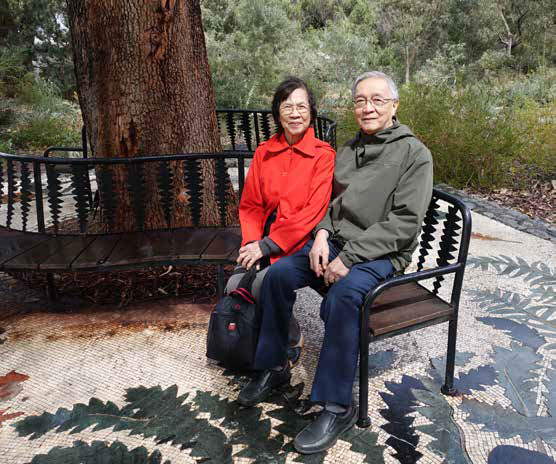
Associate Professor Aw Swee Eng’s keenness for research and curiosity about how things work led to his appointment as the first head of SGH’s nuclear medicine unit.
He was fond of “blowing things up” and experimented with self-made gunpowder, with shop-bought everyday materials. The young boy went to a concrete bridge in his hometown of Kampar, in Malaysia’s Perak province, to see how well it worked. When lit, his explosive powder did not quite go off with a bang but gave off a subdued “voom!”.
Recalling that he was “crafty” enough not to get caught, the now-84-year-old Associate Professor Aw Swee Eng, Emeritus Consultant, Department of Nuclear Medicine and Molecular Imaging, Singapore General Hospital (SGH), noted that it was his keen interest in biochemistry and strong sense of curiosity to find out how things work that led to the episode of boyhood mischief.
Many years later, those qualities would stand him in good stead. His reputation for teaching biochemistry to medical students in an engaging and relevant manner, and interest in research, reached the ears of the late Dr Kwa Soon Bee, then charged with transforming and modernising the healthcare sector. Dr Kwa, who was Medical Director of SGH (1972-1984) and Permanent Secretary of Health (1984-1996), convinced Assoc Prof Aw to start and head Singapore’s first nuclear medicine unit at SGH.
“I was not trained as a nuclear medicine person. But I like challenges,” said Assoc Prof Aw.
It would be a specialised unit that takes Singapore medicine a step further, using sophisticated radioimmunoassay (RIA) equipment to analyse blood samples.
Established as the Department of Nuclear Medicine in 1980, the department grew quickly, with increasingly complex procedures added to its range of activities. It started with 40 types of RIA tests and a few technetium-99 scans, as well as radioactive iodine to treat hyperthyroidism.
Today, even more kinds of various radioactive materials are used for diagnosis and therapy. Injected into the blood, they emit very fine rays captured on state-of-the-art SPECT (single-photon emission computed tomography) or PET (positron emission tomography) machines to measure the cells’ metabolic activity. Besides diagnosis, nuclear medicine procedures also offer targeted radionuclide therapy for difficult-to-treat and advanced cancers. Radioactive drugs seek out and bind themselves to cancer cells, before delivering a high-dose of radiation to kill the malignant cells and sparing healthy ones.
To date, the avid researcher has published close to 80 papers in local and international refereed journals. “I was interested in antigen, antibody reaction and immunology,” said Assoc Prof Aw.
He also promoted the research culture in SGH in the early days, and served as the hospital’s first Director of the Department of Clinical Research from 1989 to 2009. This became an early platform to kick-start the research careers and achievements of many doctors and staff, including Singapore’s leading clinician-scientists, who have gone on to receive many prestigious accolades and achieve national and international recognition for their research.
Assoc Prof Aw was Chairman of the SGH Institutional Review Board (IRB) from 1993 to 2009 and subsequently the SingHealth Centralised IRB for another six years, as well as Chairman of A*STAR IRB since 2017.
He is well loved and respected by his staff, not least for his keen sense of humour, but also his humility and concern for others. Some of the work of his department and that of Pathology were similarly concerned with diagnosis of blood samples, and he envisaged that some RIA tests would eventually be moved to Pathology. Over the years since then, the department has continued to grow and develop new areas of radionuclide imaging and therapy for patient care, and is currently one of the most recognised centres for nuclear medicine and theranostics (therapeutics and diagnostics) in the region.
The spunky boy matured into a deeply religious man, conducting and recording bible studies and courses at his church. The father of two — both in healthcare — and grandfather of three wanted to teach at one time. But his interest in the broader questions about life pulled him in a different direction. Lauded for his life’s work in the specialty, and possibly deemed as Singapore’s Father of Nuclear Medicine, Assoc Prof Aw was bestowed the esteemed title of Emeritus Consultant this year.
Get the latest updates about Singapore Health in your mailbox! Click here to subscribe.













 Get it on Google Play
Get it on Google Play